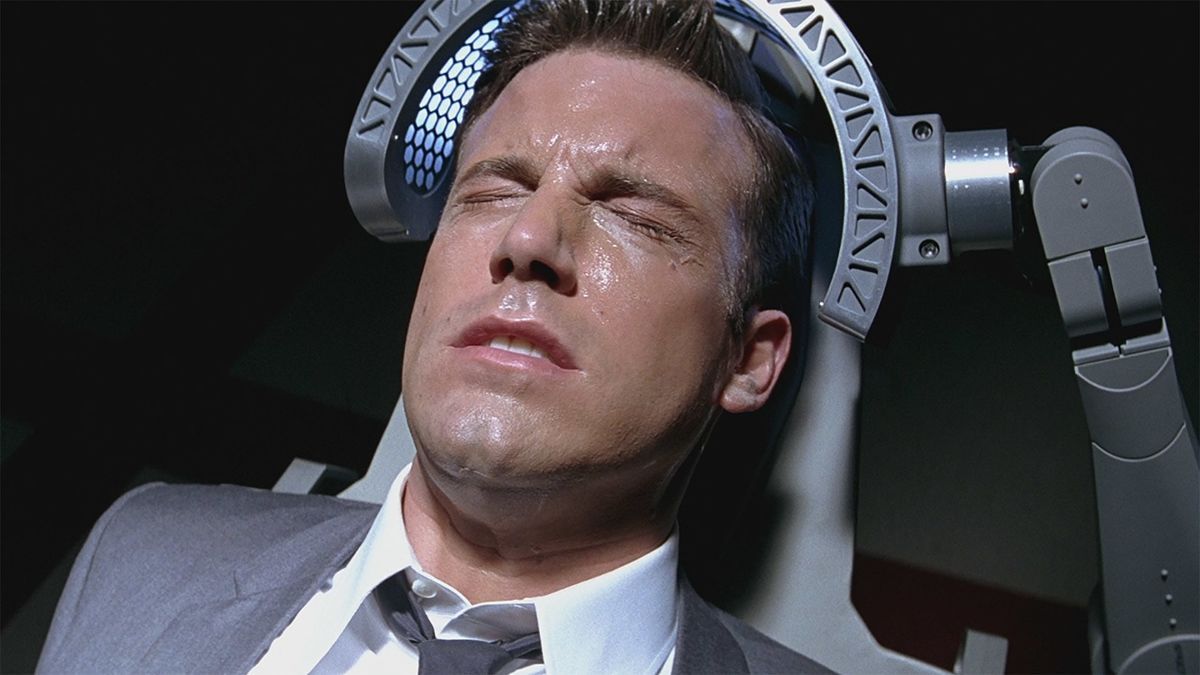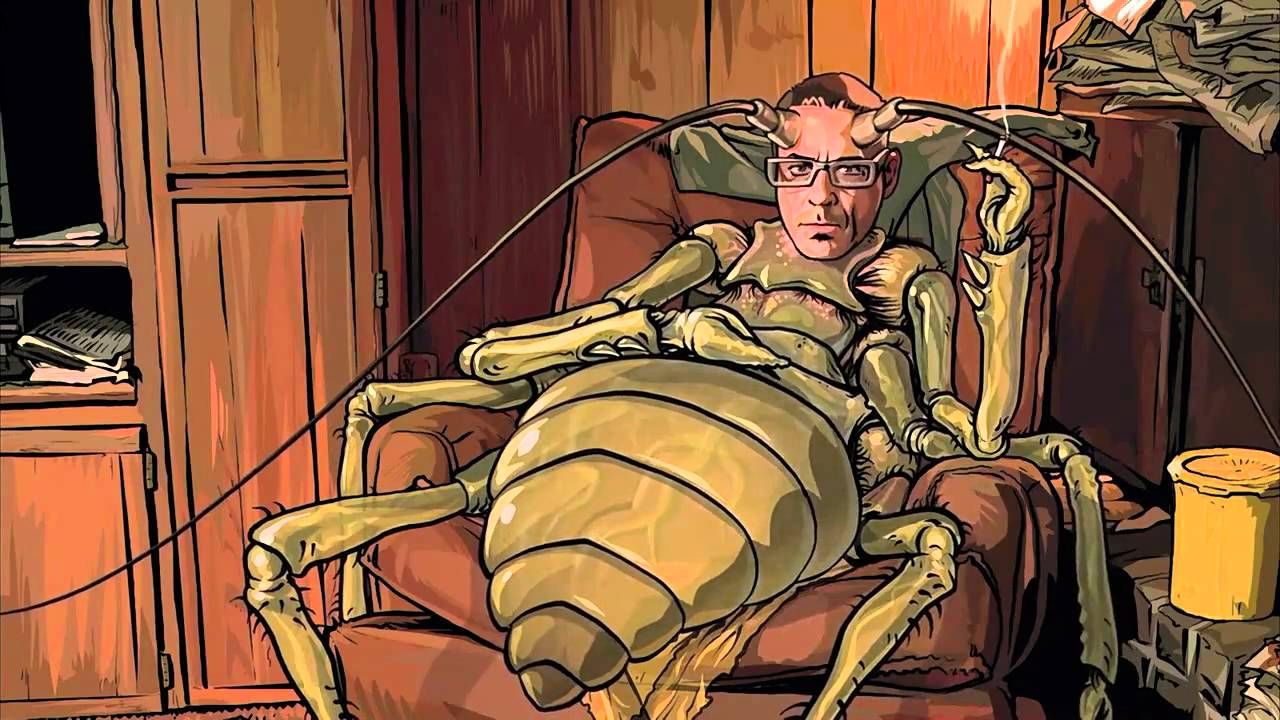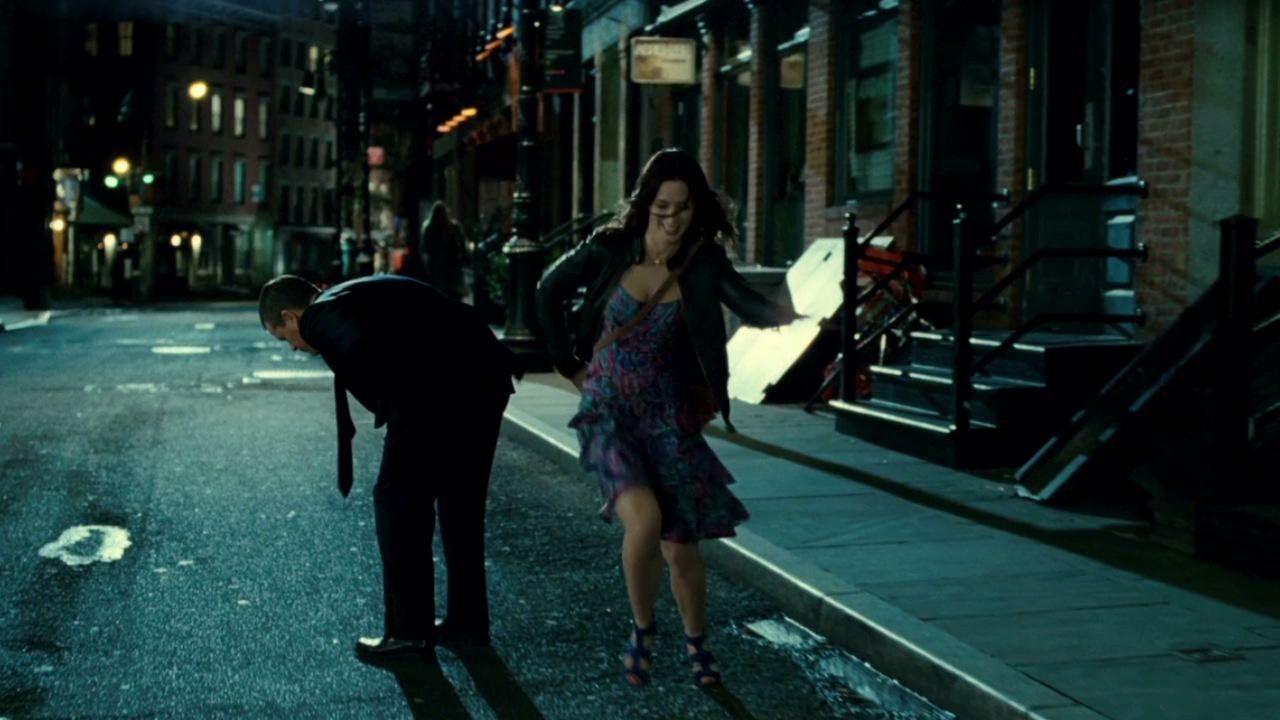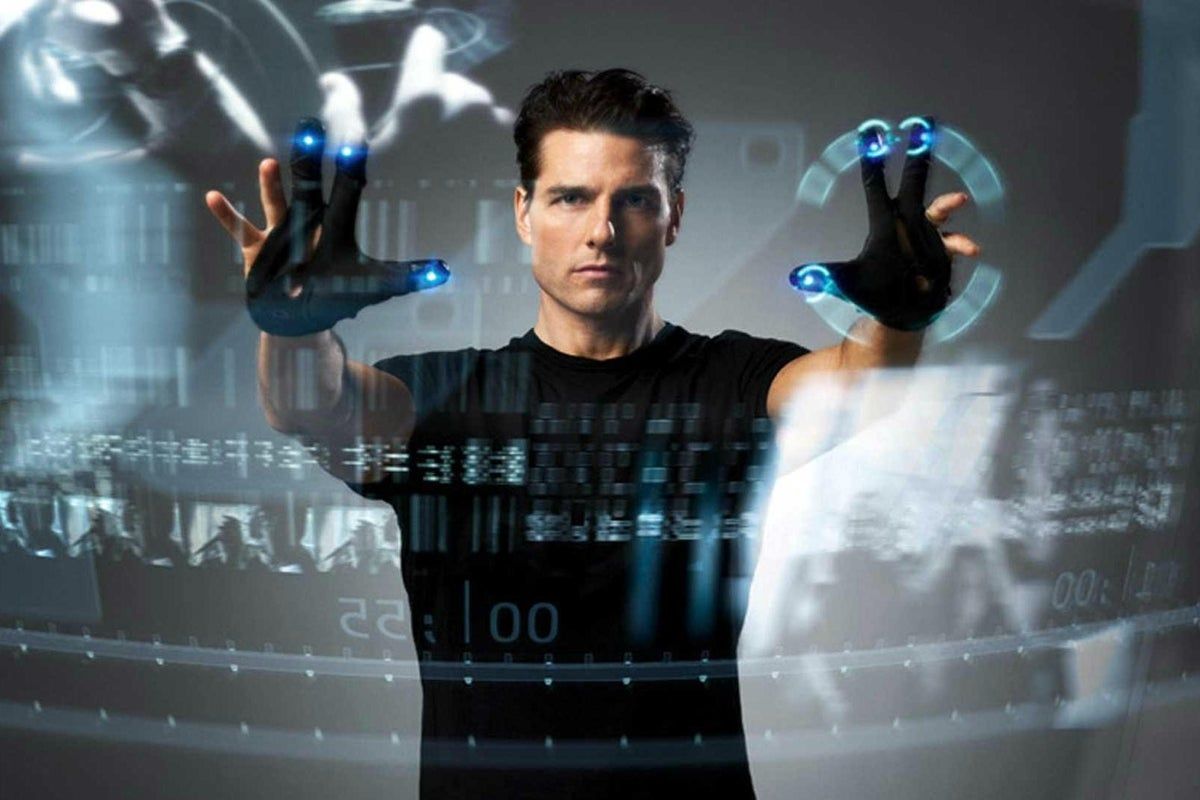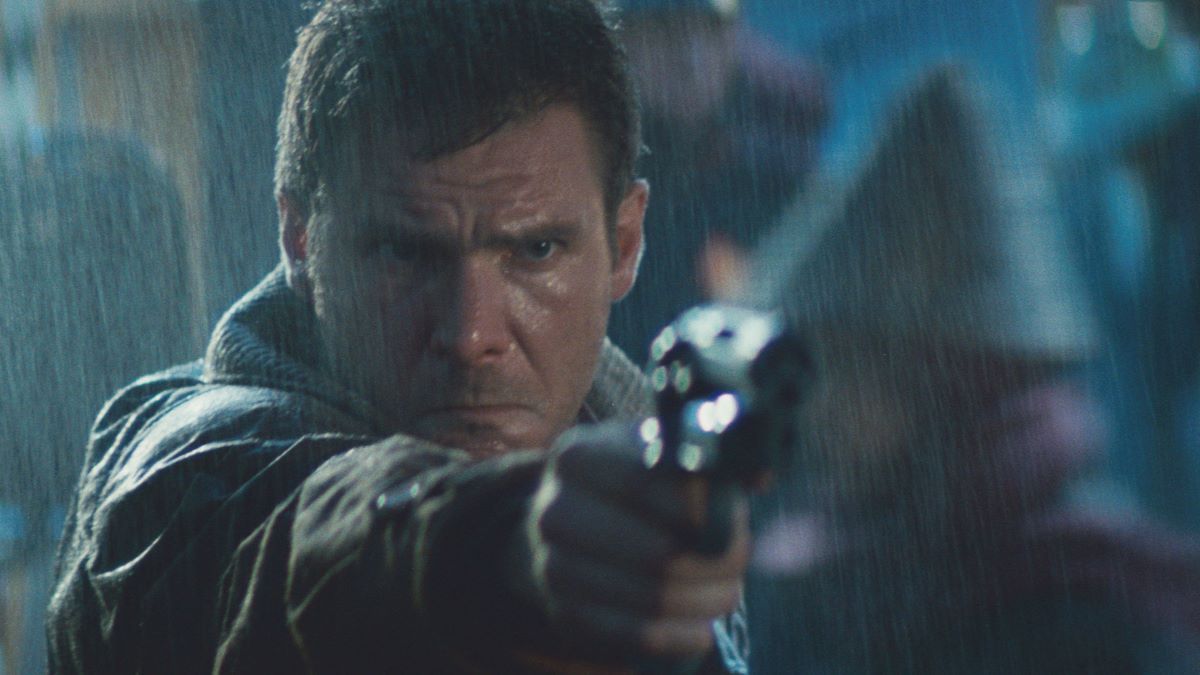Life is short [...] Art, or something not life, is long, stretching out endless, like a concrete worm. Flat, white, unsmoothed by any passage over or across it. Here I stand. But no longer.
These words were from the Philip K. Dick novel The Man in the High Castle, later turned into an Amazon Prime series; it was hardly the only successful K. Dick adaptation (see below) The famed author died 40 years ago this month of March, but left behind 44 books, 121 short stories, and more than two dozen movie adaptations to his name, along with everything from The Terminator and The Matrix to The Truman Show owing the author a great deal.
Philip K. Dick was a strange man, and his life was a balancing act between prophecy and lunacy. He claimed to have seen and talked to God in between his vast substance usage, wrote dozens of paranoid letters to the FBI, experienced hallucinations of ancient Rome superimposed on his own vision, believed himself to be possessed by divine spirits, suddenly spoke in dead languages, and attempted suicide when the spirits seemed to leave him.
While he wrote an 8,000 page 'exegesis' about his spiritual and philosophical revelations which has since been edited and published, the world seems to remember him more for Blade Runner and Minority Report, as well they should. The ideas of Philip K. Dick, be them madness or prophetic, inspired some of the greatest science fiction films of all time, and these are the best adaptations of his work, 40 years after his passing.
6 Paycheck
Action master John Woo (Face/Off) directed Paycheck, a fast-paced science fiction thriller with Ben Affleck, based on the story of the same name. Michael Jennings (Affleck) works as a reverse engineer, studying products to determine how they are made. Because of the sensitive nature of his work, he is exposed to periodic memory wipes in which everything he has learned is zapped from his brain. The problem is that after his last brain wipe, he realizes all of his money has disappeared and discovers that he had mastered seeing into the future, and before his last memory wipe he has placed various objects at strategic points to help him survive and fight as he finds himself hunted down for reasons he does not understand.
The innocent man hunted down is a most familiar Philip K. Dick (and Alfred Hitchcock) trope. Paycheck has a wild and brilliant plot that requires you to think with exciting clues and action sequences, and a satisfying ending. Uma Thurman and Aaron Eckhart also star in this spectacular film featuring mind-blowing ideas, great set pieces, plot twists, and the usual spectacular, super-fast action for which John Woo is known.
5 Total Recall (1990)
Arnold Schwarzenegger stars in the 1990 film Total Recall, which is based on Philip K. Dick’s story “We Can Remember It For You Wholesale.” Veteran science fiction director Paul Verhoeven (Starship Troopers, RoboCop) directed this adaption. As in many Philip K. Dick films, implanted memories are key to the plot, and allow for the exploration of issues of identity, humanity, and reality. Douglas Quaid (Schwarzenegger) goes to a private service that has something unique for sale. For a price, they can implant memories in your head you will believe are real, and you can do whatever you want. Quaid decides to be a secret agent in an ongoing interplanetary war, but before he can have the procedure he is interrupted and then accused of being an actual spy.
In another K. Dick film staple, the protagonist finds himself on the run, either trying to prove something (like his humanity or reality) or trying to evade secret shadow government agents with ill intentions. Arnold’s character is chased throughout the film, with secret agents wanting his valuable spy secrets. The plot is mind-bending and surreal, the action sequences are impeccable, and the film is a high-tension action masterpiece with great comedic relief. Sharon Stone plays Quaid’s wife, but she is really a secret agent who attacks him in the film’s best scene.
4 A Scanner Darkly
A Scanner Darkly, directed by Richard Linklater, is based on the story of the same name by Philip K. Dick, and is filmed in a bizarre style fusing live-action and animation. In rotoscoping, actual film footage is animated over to give it a crossover look. Keanu Reeves plays an undercover agent who is addicted to Substance D (for Death), which causes a schism between the two sides of the brain resulting in schizophrenic type thinking. In this way, he can trail himself and be completely unaware that the man, Bob Arctor, whom he is following, is in fact himself.
A Scanner Darkly is filled with whacked-out characters brilliantly played by Rory Cochrane, Woody Harrelson, Robert Downey, Jr. and Winona Ryder, and surreal, drug-induced behavior like searching for non-existent bugs crawling all over the place. It is a head trip of a film and has an interesting look, with a plot from perhaps the author’s most beloved book.
3 The Adjustment Bureau
Based on Philip K. Dick’s “The Adjustment Team,” The Adjustment Bureau is another thrilling high-tech science fiction film that raises key concepts like fate, memory, and the nature of reality. Matt Damon plays a politician, David Norris, who seemingly discovers the impossible: what happens if we accidentally see the unseen forces that magically shape all of our lives? The answer is that those forces can erase your mind and will work to alter your life.
Norris goes to work one day and literally sees everyone completely frozen while strange men make ‘adjustments’ to our reality. They abduct him and take him somewhere where they threaten to obliterate his memory if he tells anyone what he has seen. They let him live, and he discovers they are manipulating his life and trying to thwart a potential relationship with a woman, Elise, played by Emily Blunt. The two learn to teleport through doors and the mysterious men hunt down Norris in one of the more wistful and emotional Philip K. Dick adaptations.
2 Minority Report
Based on Philip K. Dick’s story of the same name, the film Minority Report teams the author up with Steven Spielberg, Tom Cruise, and millions of dollars of high-tech scenery, making for a beautiful masterpiece. The film tackles the issue of “pre-crime," exploring the ethics of justice. In the future, strange creatures who can read minds and the future find people who will imminently commit murder, summoning a special force led by Cruise’s character to stop and arrest them before they can complete the crime.
This blurs the line between intent and action, and does away with notions of fate and personal responsibility. After all, if they are stopped before they can commit their crime, doesn’t that mean that they are innocent? Spielberg’s film is a huge budget spectacular with some amazing special effects and absolutely top-notch action sequences. Cruise finds his role reversed as he himself is accused of a murder he will supposedly commit, and he must go on the run to prove his innocence, if that is even possible. Spielberg’s visionary film does justice to the original source material.
1 Blade Runner
Blade Runner is Ridley Scott’s dazzling science fiction film noir masterpiece based on Philip K Dick’s brilliant short story “Do Androids Dream of Electric Sheep?” Blade Runner presents a dystopian nightmare of a future and led to the genre of cyberpunk, where men and machine could meld to form something wholly different, in this case, Replicants. These are robots with implanted memories who think they are actual people and have a seven-year life cycle. When one Replicant, played by Rutger Hauer, decides to live longer than seven years, he confronts his maker and threatens the future of civilization. Harrison Ford's character is sent to track him down and kill him, as evidence mounts that he might be a Replicant himself, and as he finds himself attracted to another Replicant played by Sean Young in her best role.
Blade Runner is a unique and disturbing vision of a future of both high-tech and low life. The film spawned an inferior sequel called Blade Runner 2049 in which Replicants are capable of giving birth. Harrison Ford makes a welcome return to the franchise, but nothing campes to the original Blade Runner, which remains the best adaption of a Philip K, Dick story and the most compelling look at the future on this list.


